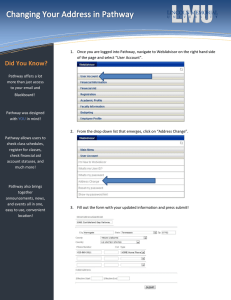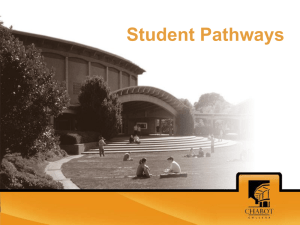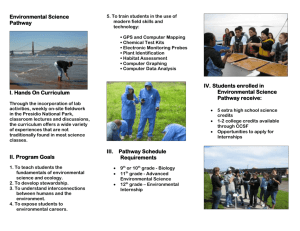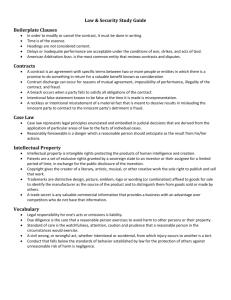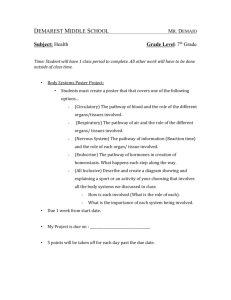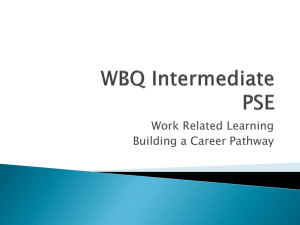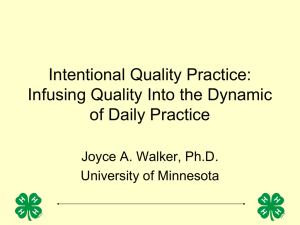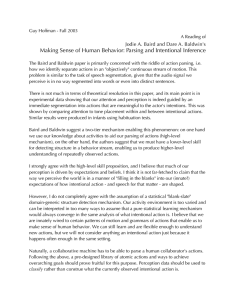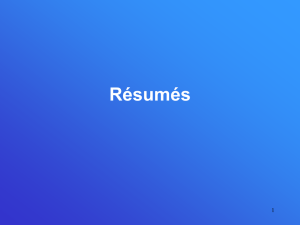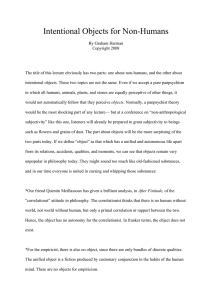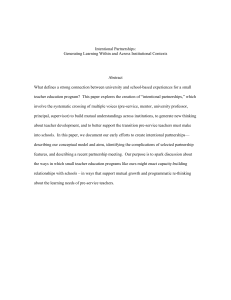By: Michael Despeaux
advertisement
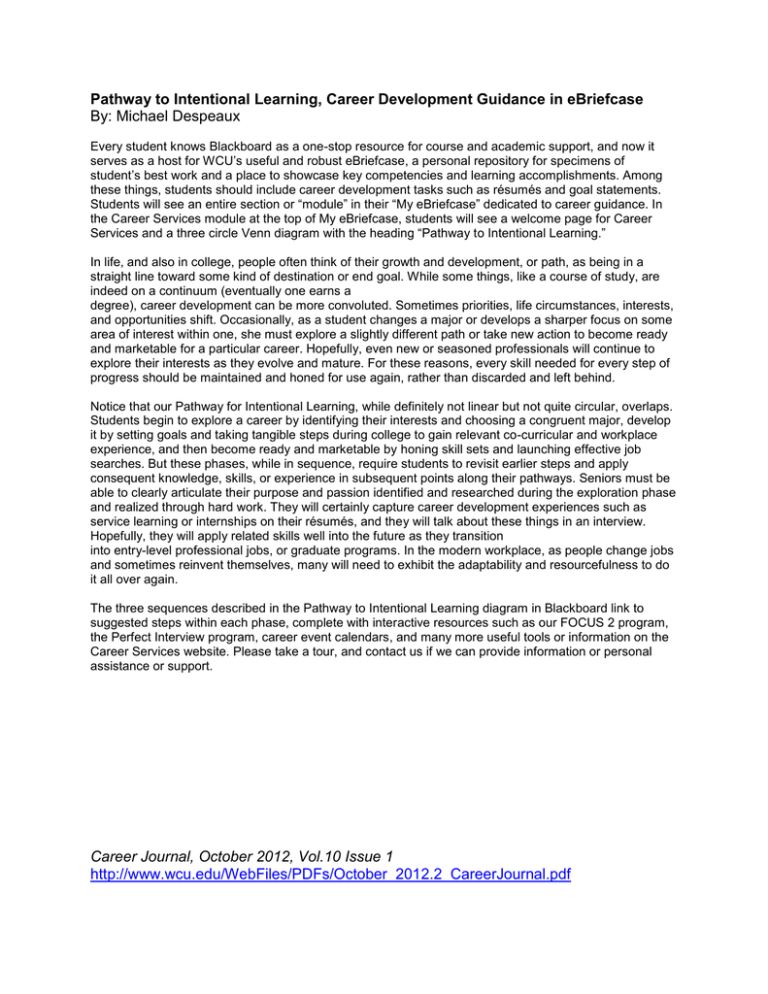
Pathway to Intentional Learning, Career Development Guidance in eBriefcase By: Michael Despeaux Every student knows Blackboard as a one-stop resource for course and academic support, and now it serves as a host for WCU’s useful and robust eBriefcase, a personal repository for specimens of student’s best work and a place to showcase key competencies and learning accomplishments. Among these things, students should include career development tasks such as résumés and goal statements. Students will see an entire section or “module” in their “My eBriefcase” dedicated to career guidance. In the Career Services module at the top of My eBriefcase, students will see a welcome page for Career Services and a three circle Venn diagram with the heading “Pathway to Intentional Learning.” In life, and also in college, people often think of their growth and development, or path, as being in a straight line toward some kind of destination or end goal. While some things, like a course of study, are indeed on a continuum (eventually one earns a degree), career development can be more convoluted. Sometimes priorities, life circumstances, interests, and opportunities shift. Occasionally, as a student changes a major or develops a sharper focus on some area of interest within one, she must explore a slightly different path or take new action to become ready and marketable for a particular career. Hopefully, even new or seasoned professionals will continue to explore their interests as they evolve and mature. For these reasons, every skill needed for every step of progress should be maintained and honed for use again, rather than discarded and left behind. Notice that our Pathway for Intentional Learning, while definitely not linear but not quite circular, overlaps. Students begin to explore a career by identifying their interests and choosing a congruent major, develop it by setting goals and taking tangible steps during college to gain relevant co-curricular and workplace experience, and then become ready and marketable by honing skill sets and launching effective job searches. But these phases, while in sequence, require students to revisit earlier steps and apply consequent knowledge, skills, or experience in subsequent points along their pathways. Seniors must be able to clearly articulate their purpose and passion identified and researched during the exploration phase and realized through hard work. They will certainly capture career development experiences such as service learning or internships on their résumés, and they will talk about these things in an interview. Hopefully, they will apply related skills well into the future as they transition into entry-level professional jobs, or graduate programs. In the modern workplace, as people change jobs and sometimes reinvent themselves, many will need to exhibit the adaptability and resourcefulness to do it all over again. The three sequences described in the Pathway to Intentional Learning diagram in Blackboard link to suggested steps within each phase, complete with interactive resources such as our FOCUS 2 program, the Perfect Interview program, career event calendars, and many more useful tools or information on the Career Services website. Please take a tour, and contact us if we can provide information or personal assistance or support. Career Journal, October 2012, Vol.10 Issue 1 http://www.wcu.edu/WebFiles/PDFs/October_2012.2_CareerJournal.pdf
